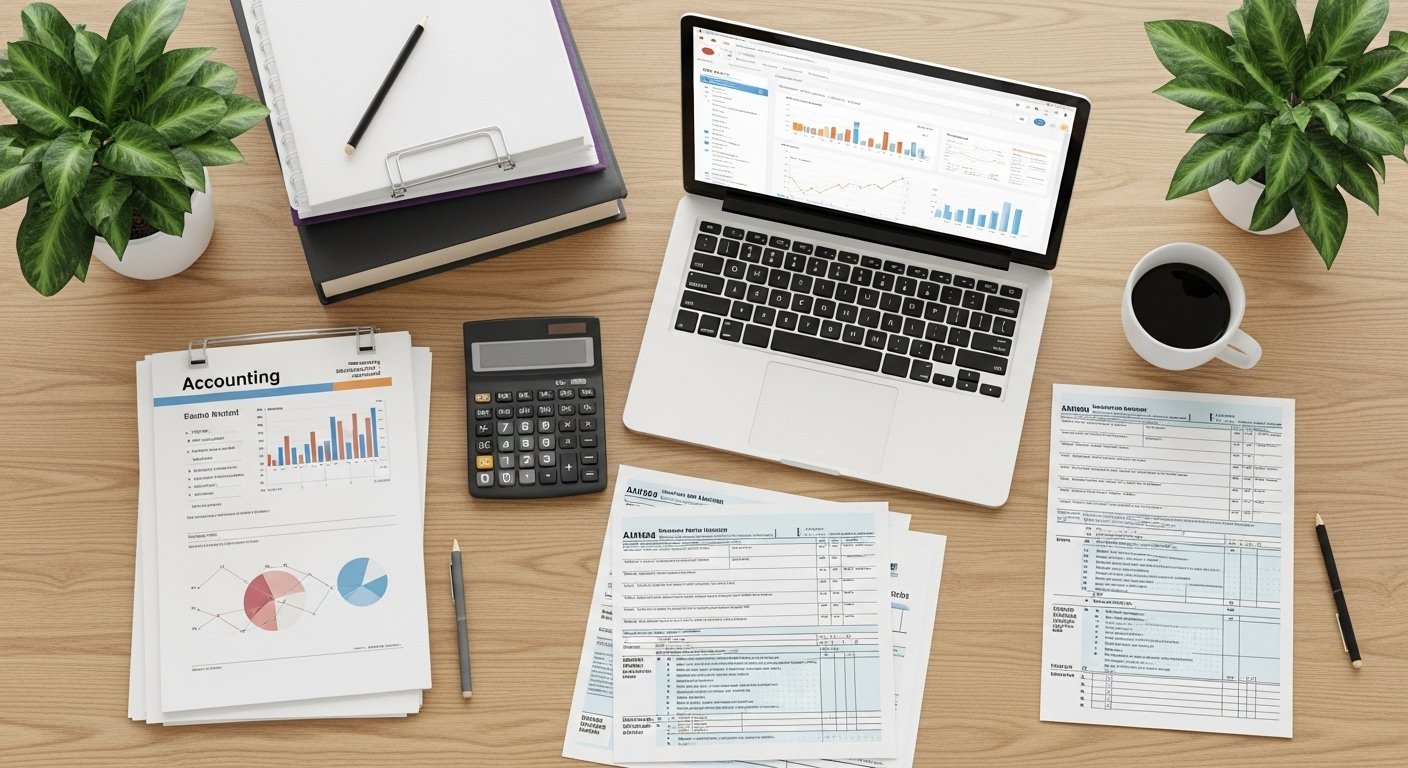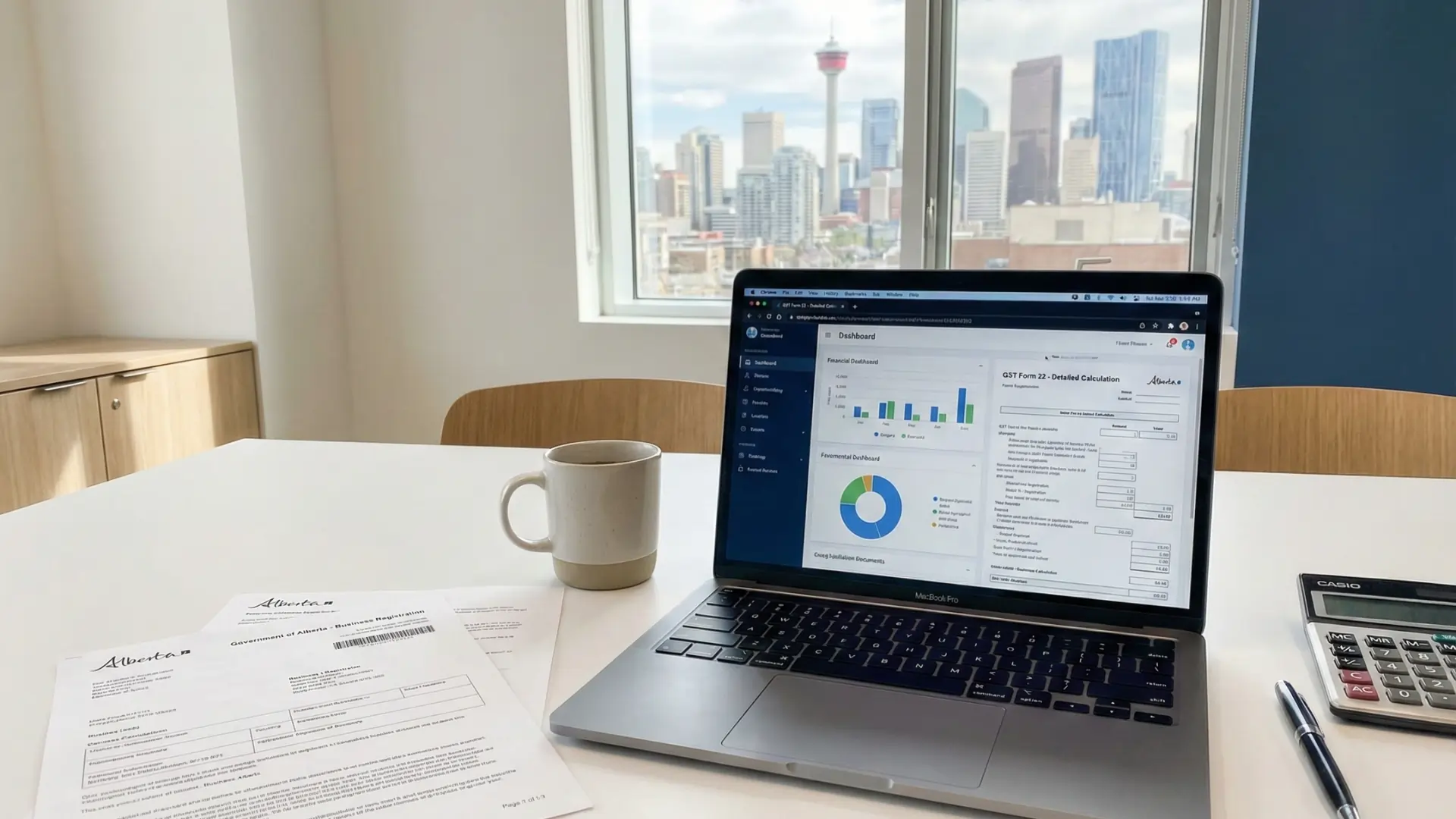Every dollar you can legally deduct is a dollar that stays in your business instead of going to the Canada Revenue Agency. Whether you’re incorporated or self-employed, knowing what you can claim makes a real difference to your bottom line. Here are three tax deductions Calgary business owners frequently miss—and how to claim them properly.
1. Home Office Expenses
If you run your business from home, even part-time, you can usually claim a portion of your household expenses. This deduction applies whether you rent or own your home, and it covers more costs than most people realize.
What You Can Claim
Home office deductions typically include:
- Utilities like electricity, heating, water, and internet
- Property taxes and home insurance
- Rent payments or mortgage interest
- Repairs and maintenance that benefit your workspace
- Cleaning services for your office area
- Home security systems
The key is calculating what percentage of your home is used exclusively for business. For example, if your dedicated office space takes up 10% of your home’s total square footage, you can claim 10% of these eligible costs. If you use a room only partly for business, your deduction percentage will be smaller.
Important Rules to Remember
The CRA requires that your home office be your principal place of business, or that you use it regularly and exclusively to meet clients or customers. A corner of your bedroom where you occasionally check emails doesn’t qualify. However, if you meet clients there weekly or it’s where you do most of your work, you likely qualify.
Keep all receipts and records as proof. The CRA can request documentation during a review or audit, so accuracy matters. Many Calgary business owners underestimate how much they can save with this deduction. A professional CPA can help you calculate the right percentage and ensure you’re claiming everything you’re entitled to without raising red flags.
Working with an accounting firm that offers bookkeeping services means your home office expenses get tracked properly throughout the year, making tax time much simpler.
2. Vehicle and Travel Costs
Many Calgary businesses depend on vehicles for daily operations—visiting job sites, meeting clients, picking up supplies, or making deliveries. If you use your personal vehicle for business purposes, you can deduct a portion of your vehicle expenses. This deduction can be substantial, but it requires careful record-keeping.
What Vehicle Expenses Are Deductible
You can claim business-related portions of:
- Fuel and oil changes
- Maintenance and repairs
- Insurance and registration fees
- Lease payments or depreciation if you own the vehicle
- Parking fees and tolls for business trips
- Car washes and detailing
- Loan interest on a vehicle purchased for business
To claim these expenses correctly, you need to track your business versus personal driving. Keep a detailed logbook for every business trip that includes the date, destination, purpose, and kilometres driven. At year-end, calculate your business percentage of total annual kilometres.
Example Calculation
Let’s say you drive 25,000 kilometres in a year. If 10,000 kilometres are for legitimate business purposes, your business use is 40%. That means you can claim 40% of all your vehicle expenses for the year. If your total vehicle costs were $8,000, you could deduct $3,200 from your taxable income.
Travel Expenses Beyond Your Vehicle
Don’t forget about other travel costs related to business. If you fly to meet a supplier, attend a conference, or visit an out-of-town client, those expenses are deductible too. This includes:
- Airfare and other transportation
- Hotel accommodations
- Meals during business travel (usually 50% deductible)
- Taxi or rideshare costs
- Conference or trade show fees
The critical rule is that the trip must be primarily for business. Personal vacations don’t count, even if you squeeze in a quick client meeting. Keep receipts and document the business purpose of each trip.
For businesses with employees who drive company vehicles, managing these deductions becomes even more complex. Professional payroll services can help you handle vehicle allowances and taxable benefits correctly.
3. Professional Services and Software
Small business owners often overlook that professional support costs are fully deductible. If you hire experts to help manage or grow your business, those fees reduce your taxable income.
Professional Fees You Can Claim
This category includes:
- Accounting and bookkeeping services
- Legal fees for business matters
- Consulting and business advisory services
- Tax preparation and filing fees
- Financial planning related to your business
- Fees paid to industry associations or professional bodies
Yes, that means the cost of hiring a CPA to prepare your corporate tax return is itself a deductible expense. It’s one of those situations where spending money on professional help actually saves you more in the long run.
Software and Technology Costs
Modern businesses rely on digital tools, and most of these costs are deductible:
- Cloud accounting software subscriptions (QuickBooks, Xero, FreshBooks)
- Website hosting, domain registration, and maintenance
- Business email services and cloud storage
- Project management and communication tools
- Industry-specific software for invoicing, scheduling, or inventory
- Subscription services used exclusively for business
- Online advertising and marketing platforms
The key word is “business.” If you pay for a personal Netflix account, that’s not deductible. But if you subscribe to industry publications, online training courses, or software that helps you operate your business, those costs qualify.
Insurance and Other Professional Costs
Don’t forget these commonly missed deductions:
- Business liability insurance
- Professional liability or errors and omissions insurance
- Commercial property insurance
- Cybersecurity or data protection services
- Advertising and marketing expenses
- Bank fees and merchant processing charges
Every legitimate expense that helps you run or grow your business can potentially reduce your tax bill. The challenge is knowing what qualifies and keeping proper documentation.
Why These Deductions Matter for Calgary Businesses
Alberta offers one of Canada’s lowest corporate tax rates, which is great for business growth. However, that doesn’t mean you should overlook valuable deductions. Even small savings add up significantly over a tax year, especially for owner-operated companies, contractors, and service-based businesses.
Whether you run a trades business, operate a retail shop, provide professional services, or manage a food service company, reviewing your deductible expenses carefully can make a big difference to your annual tax bill. It also helps you understand your true business costs and plan more strategically for the year ahead.
Many Calgary business owners discover they’ve been leaving money on the table simply because they didn’t know what they could claim or didn’t have the right documentation. Working with a knowledgeable CPA ensures you capture every legitimate deduction while staying fully compliant with CRA requirements.
Avoid CRA Problems
One important note: claiming deductions you’re not entitled to can lead to penalties, interest, and audits. The CRA takes a close look at certain categories like vehicle expenses and home office claims. That’s why accurate record-keeping and professional guidance are so important.
If you receive a letter from the CRA questioning your deductions, having proper documentation makes all the difference. Firms offering CRA audit support can represent you and handle communications with tax authorities, removing the stress and ensuring your rights are protected.
Final Thoughts
Tax deductions aren’t about finding loopholes or pushing boundaries. They’re about claiming what you’re legally entitled to and keeping more of your hard-earned money in your business. The three deductions we’ve covered—home office expenses, vehicle and travel costs, and professional services—are commonly missed by Calgary small business owners, but they can add up to thousands of dollars in tax savings.
The best approach is to track expenses throughout the year, keep detailed records, and work with a professional who understands both tax law and your specific industry. Don’t wait until tax season to think about deductions. Build good habits now, and you’ll be in a much stronger position when filing time arrives.
At Vision Accounting, we help Calgary business owners make sense of their finances, plan ahead, and pay only what they truly owe. We specialize in working with trades, trucking companies, and small businesses across Alberta. Our team knows which deductions apply to your situation and how to document them properly so you maximize savings while staying CRA-compliant.
If you’re not sure what you can claim or think you might have missed deductions in previous years, now is a great time to get professional advice. The right guidance can uncover savings you didn’t know existed and give you confidence that your tax return is accurate and complete.
Book a consultation with Vision Accounting today to review your situation and discover potential tax savings you may be missing.






